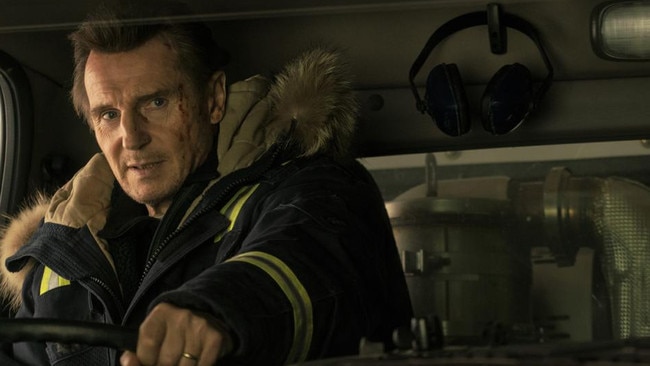Liam Neeson defends “primal urge to lash out” at black man
Liam Neeson sparked a furore after admitting he wanted to attack and kill a black man when his friend was raped 40 years ago.

Hollywood star Liam Neeson has insisted he is not racist after causing an international furore with a confession that he was once so enraged at a friend’s rape that he set out to attack a random “black b******”.
“I’m not a racist,” Neeson told the ABC’s Good Morning America when questioned about his admission in a newspaper interview that he felt a “primal urge to lash out” when his friend had told him about the alleged rape by a black man 40 years ago.
However despite his denials, the premiere of Neeson’s latest movie was called off, with organisers of Cold Pursuit screening announcing its cancellation just two hours before it was due to start.
The 66-year-old star of Schindler’s List had told Britain’s Independent newspaper earlier this week: “I went out deliberately into black areas in the city, looking to be set upon,” recalling that he went out several times carrying a “cosh,” a type of baton, hoping someone would pick a fight.
“I’m ashamed to say that and I did it for maybe a week, hoping some black b****** would come out of a pub and have a go at me about something, you know? So that I could … kill him.”
However he told the ABC that his fury was at the rapist’s act, not his race or colour.
“If she had said an Irish or a Scot or a Brit or a Lithuanian I would — I know I would — have had the same effect. I was trying to show honour, to stand up for my dear friend in this terribly medieval fashion,” said the star of Schindler’s List.
The actor has been promoting his latest thriller Cold Pursuit, about a father seeking revenge after his son is murdered by a drug gang.

“It was horrible, horrible when I think back, that I did that. And I’ve never admitted that,” he said.
In the end, no violence occurred and Neeson added: “It shocked me and it hurt me … I did seek help. I went to a priest.”
At the time the events occurred Neeson was living in Dublin, which has a very small population of West Indian and African descent.
He told the newspaper when he asked the rape victim if she knew who the attacker was, she didn’t. He then asked, “What colour were they?” and she said “black.”
His remarks triggered widespread condemnation on social media, sparking a widespread debate about racism.
Charles Blow, an African American columnist for The New York Times, asked on Twitter if a black actor could have got away with the same thing: “Could Will Smith confess to stalking the streets of Los Angeles for a whole week searching for random white men to kill and get a pass?”
#LiamNeeson you can thank whatever gods there may be that I’m on book leave and not writing a column right now. I would clear all this up. You are no hero for your admission. You are a representative of racial terror.
— Charles M. Blow (@CharlesMBlow) February 5, 2019
Kovie Biakolo, an African American editor at BuzzFeed, noted a similarity between Neeson’s desire for violent confrontation with a black man and George Zimmerman’s killing of an unarmed black teenager, Trayvon Martin, in Florida in 2012.
Today is Trayvon’s birthday and I had a thought: What’s the distance between Liam Neeson and George Zimmerman?
— Kovie Biakolo (@koviebiakolo) February 5, 2019
It gave me pause.
However, former England footballer John Barnes, who suffered racist abuse during his career, defended Neeson. The actor “deserves a medal” for speaking honestly, Barnes said.
Barnes told Sky News that Neeson responded in the way he did because “this is what society has shown him, that black people do, Muslims do — this is what society has wrongly shown him.”
Football legend @officialbarnesy has told Sky News he thinks actor Liam Neeson 'deserves a medal' for his honesty about once having violent thoughts about "killing" a black person.
— Sky News (@SkyNews) February 5, 2019
Read the full story here: https://t.co/7jgA6zVH55 pic.twitter.com/kOZgFRQOis
In his interview with The independent, Neeson said he learned the “need for revenge” while growing up in Northern Ireland during years of sectarian violence known as “The Troubles” in the British province.
Neeson’s acting career has spanned four decades and included two voice roles in The Chronicles of Narnia series.
— AFP


